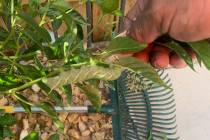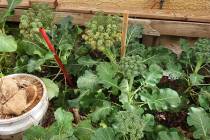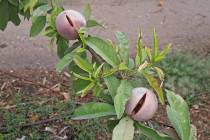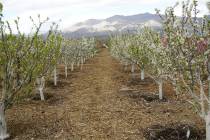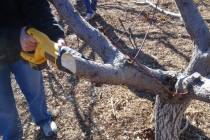Education leads to appreciation of what’s truly invaluable
Green homes are often considered more valuable than others of similar size and location, but what actually determines value? There may be tangible differences in efficiency, quality, comfort or level of toxicity, but unless a buyer is educated about those things and they are important to them, value can go right out the window. Value is tied to one’s knowledge and appreciation of a particular item.
Value is often contextual, too. For example, a person may be well-informed about the value of precious gems and have a strong desire to own them, but if they were close to dying of thirst, a canteen of fresh water would win out over the shiniest of baubles. In such an extreme case the desire to survive is instinctual.
I think the best path is to opt for education first. That leads to appreciation. The combination of both provides the information necessary to decide if something is important enough to place a high value on it, ideally before it becomes a matter of survival. Such is the case with Earth, our Home with a capital H.
Our culture has become myopic, obsessed with short-term thinking and instant gratification. We must cultivate a world view that includes much longer time frame, since our actions are shaping the future for all who may be there to experience it.
Just as it takes an informed buyer to appreciate the true value of a green home, it takes an informed citizenry to appreciate the true value of the world we live in.
I’ve written about the importance of personal and public libraries. Reading books is one of the best things we can do for ourselves, our children and our future.
If you would like a suggestion, check out “The Sixth Extinction: An Unnatural History” by Elizabeth Kolbert. This excellent book provides an explanation of how extinctions have occurred in the past and examines the cause of current extinction event that is clearly underway.
Many people say they are just too busy to read. It’s an excuse I’ve heard all too often. Reading a good book is time well-spent, but in any case there are alternatives.
Most of us drive every day. We can use technology to absorb quality content while commuting, running errands or on longer trips. Fortunately, there are some excellent sources of alternative information.
Alex Smith is a Canadian who produces a blog and weekly podcast called Radio Ecoshock. I’ve listened to many of his shows and can tell you from firsthand experience that they are worth listening to on a regular basis. Smith shares my deep concern about our future and he is doing something about it.
Each hourlong Radio Ecoshock show is hosted by Smith and features one or more guests in an interview format. The focus is one what is happening to our planet and what can be done to address it.
Smith interviews well-respected scientists, environmentalists and many others actively involved in positive change. He consistently provides quality information and treats every guest with respect and appreciation. He covers dire news about our changing world, balanced with innovative solutions being implemented by people around the world.
Radio Ecoshock offers in-depth discussions about things you won’t see on the 6 o’clock news. Smith’s style is intelligent, direct and thoughtful. He may not agree with everything his guests say, but he gives them the space to speak their beliefs without interruption. It is radio for grownups.
The Radio Ecoshock blog at www.ecoshock.info includes a description of each program along with audio files of the show that can be downloaded for free. Audio archives can also be found at www.ecoshock.org. In my opinion, it would be a great program addition to a local nonprofit radio station. People need to know.
Grab some Radio Ecoshock podcasts and load them onto your phone or MP3 player. They will deepen your understanding and appreciation of our world, things we need perhaps more than anything right now.
Steve Rypka is a green living consultant and president of GreenDream Enterprises, a company committed to helping people live lighter on the planet. For more information and links to additional resources relating to this column, or to reach Rypka, visit www.greendream.biz.








